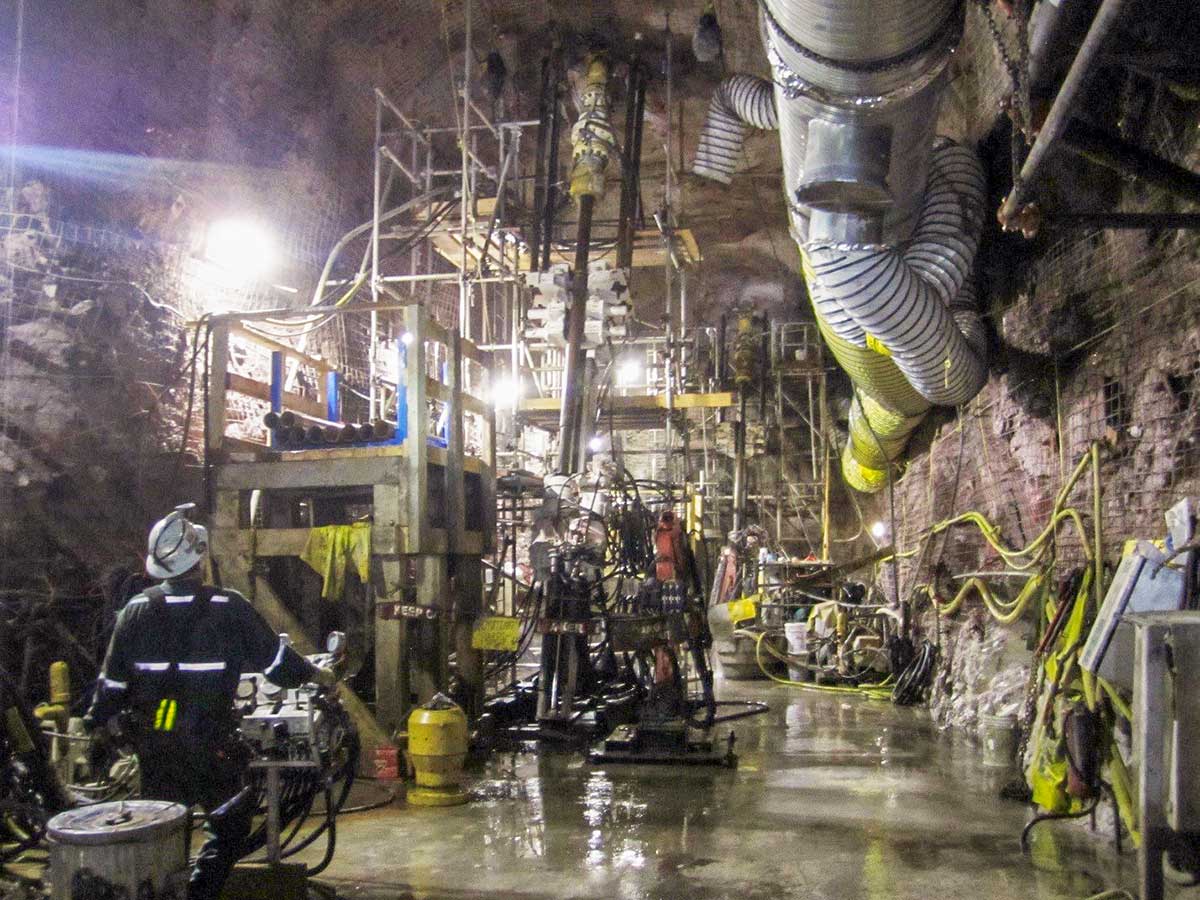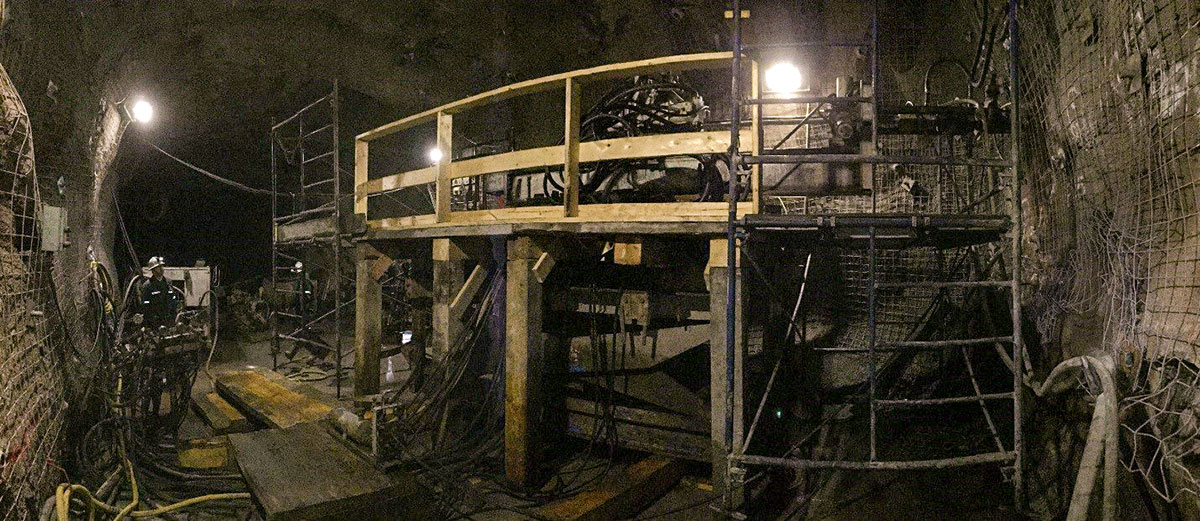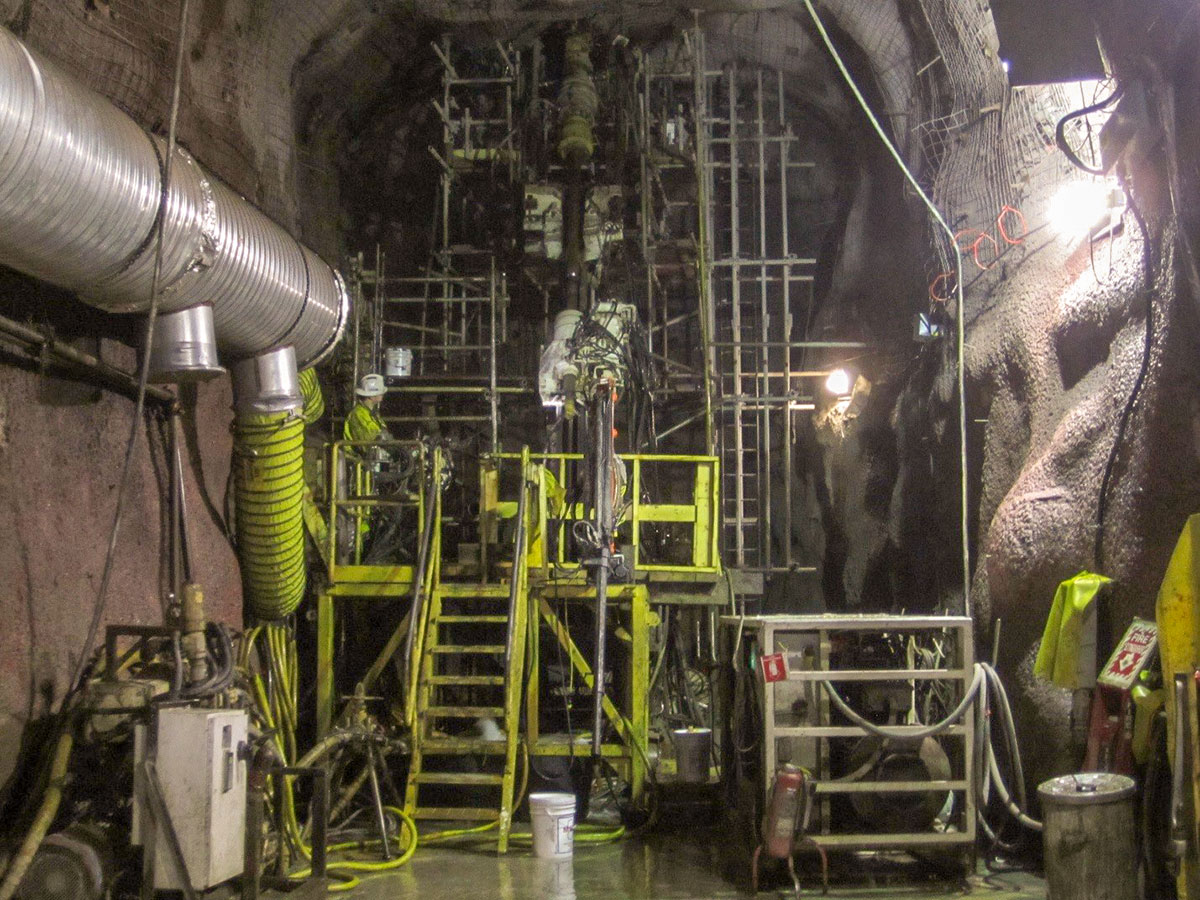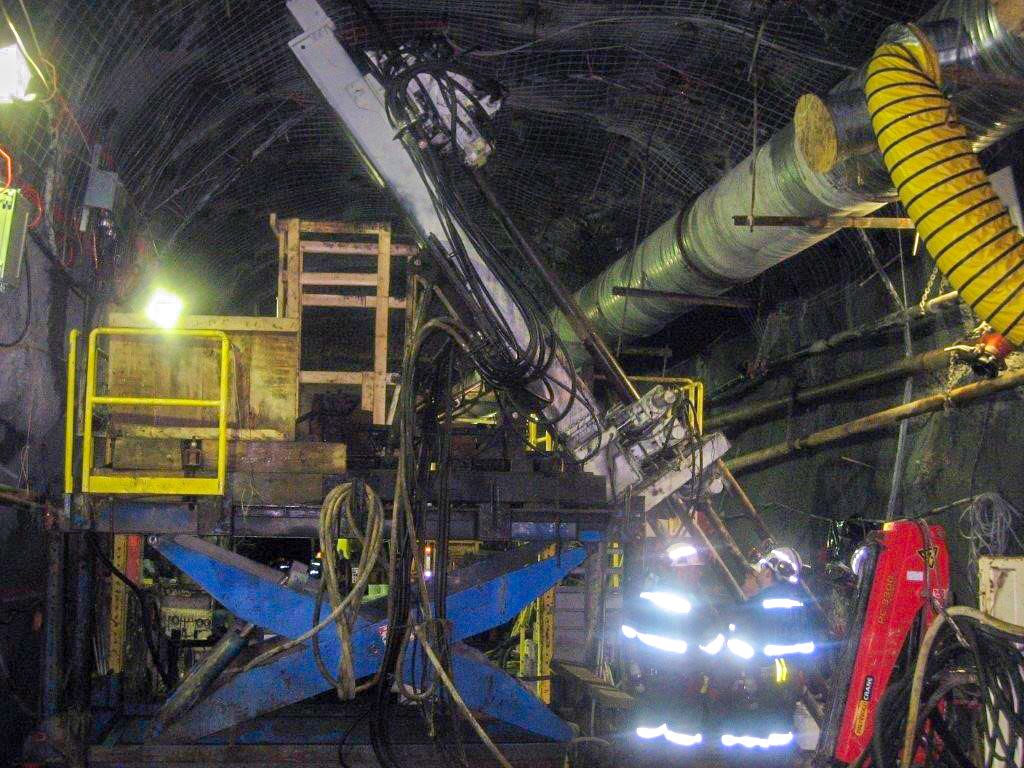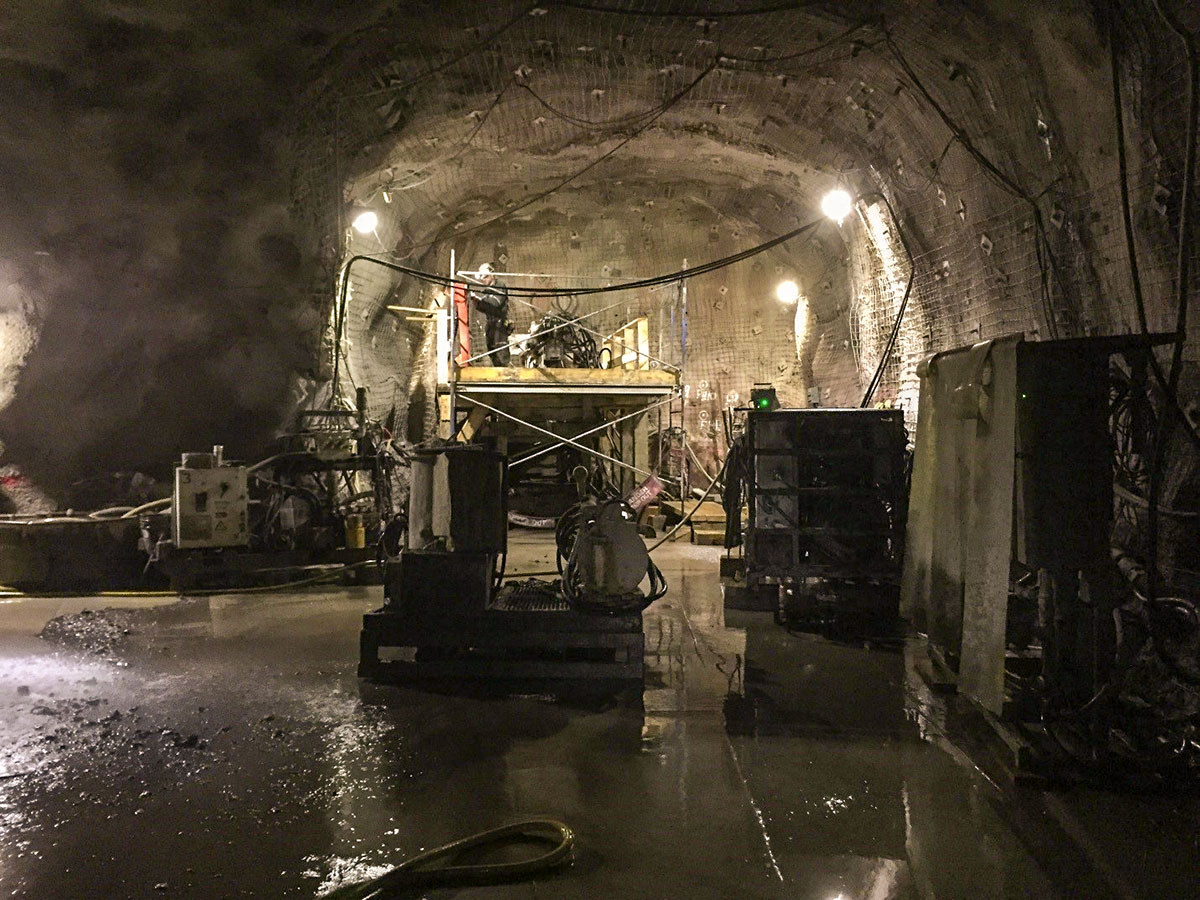SAFETY
February 14, 2018
14 Years LTI-Free At McArthur River
Boart Longyear Safety Milestone: 14 Year LTI-Free
The Cameco McArthur River mine in Northern Saskatchewan has the world’s largest high-grade uranium deposit. Boart Longyear has proudly drilled at the McArthur River mine since 1996. Located in the Athabasca Basin, ground and water conditions can be extremely challenging at the mine. A great deal of skill, knowledge, and a strong safety culture is critical to any successful drilling program, but that's especially true at the McArthur River mine.
To call the work at McArthur River specialized is an understatement.
Over the years Boart Longyear has performed many types of drilling including Freeze Hole Drilling and PWT Bull Nose Bit Drilling. It’s not unusual to drill to 120 meters deep and at dips of +90’ to -90’, for the installation of pipes to freeze the ground. Picture three layers of diamond drill rods encased in thick cement. The ground is then frozen so the uranium ore can be extracted. Additionally, over-coring is regularly performed to remove the brine freeze pipes.
To call the work at McArthur River specialized is an understatement. In 2011, Boart Longyear was presented with The Cameco Innovation Award. This was in recognition for the innovative technology in “A New Application of Freeze Technology to Isolate Mining Areas.” No other contractor has received this prestigious award at the mine.
The ground conditions at McArthur River can be extremely challenging. Ore body mapping and core rock exploration have been conducted under drill hole pressures of up to 1000 psi, which prevents the ground from “squeezing in” on the rod string.
When dealing with Uranium, 100% of the water must be contained within the drill hole and/or rod string. Boart Longyear crews are trained to protect the underground environment while the drill hole is producing 500 gallons of potentially contaminated water per minute at a hydrostatic pressure of up to 780psi. Implementing and following safety and policy procedures have been and always will be the key to successful mining.
Revising policies and procedures for safety and efficiency and creating a strong safety culture were the number one goals when Jim Nelson took over operations at McArthur River in 2006. Years of drilling experience and knowledge gave Jim the credibility to identify and implement necessary changes. Streamlining the project for safety and productivity was not an easy task. Jim was tasked with overcoming scheduling challenges, complicated personnel issues, and a lack of organization.
By listening to the crew’s concerns and working with them for their ideas and buy-in, everyone started noticing the changes. Supervisor Brian Reister who has been working at McArthur for 15 years says, “JSEAs and policies and procedures were built around the specialized drilling at McArthur River”. He and Supervisor Jonathan Roy, who has also worked at McArthur for the better part of a decade, have been instrumental in driving the safety culture.
The achievement of reaching 14 years with no lost time incidents, first and foremost must be attributed to all the individuals who have been working at McArthur River over the years.
Continuous training, safety stand downs, positive incentives and consistent reinforcement of policy and procedures made the entire crew accountable for their actions and success. A safety team was put in place and everyone worked hard to create an environment that brought out the best in each other.
The achievement of reaching 14 years with no lost time incidents, first and foremost must be attributed to all the individuals who have worked at McArthur River over the years.
Every employee at McArthur has changed their behavior and embraced the proactive safety culture that Boart Longyear prides itself on; from the longstanding Golden Rules of Safety and JSEAs to the more recent introduction of the Hazard Wheel and improved FLRA process focusing on the Hierarchy of Controls.
Working as a team is paramount at McArthur River; every single individual comes together to develop solutions to make sure the work environment is not only safe for themselves but for everyone else. There is no room for error when working in a radioactive environment, contamination not only puts individuals at risk but also the livelihood of every person on site.
Due to the unique and dangerous environment, traditional drilling materials and tools have been substituted with specialized products. Operations teams worked closely with Boart Longyear engineers to develop controls to eliminate the chances of human error such as the quad latch backend to ensure a latched tube stays latched.
The Delta Clamp allows the LMTM150 to drill and install oversized rods and casing (PWT, SWT, UW rods and 8”). The Anti-Drop System was developed and installed to prevent the foot clamp and jaws from being open at the same time because of the manual chucks. The Kelly Valve, another innovation developed specifically for the mine, prevents any radioactive water from being present and making contact with employees during tube changes or adding or removing drill rods.
Reaching the milestone of 14 years without an LTI has been a team effort. Participation, collaboration, and contributions from every level and department within Boart Longyear should be acknowledged. On a site level, it is the everyday procedures from lineup meetings, to following and adding to JSEAs, to conducting both team and individual-based Field Level Risk Assessments. Everyone has a role in working safely. It is both believing in, and utilizing all the tools and contributions that the Boart Longyear team has been able to: Make It Safe. Make it Personal. Make it Home.



